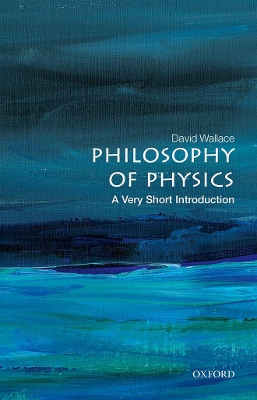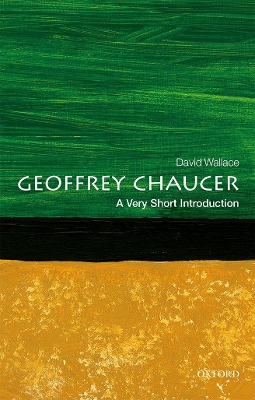Very Short Introductions
2 total works
Very Short Introductions: Brilliant, Sharp, Inspiring
Philosophy of physics is concerned with the deepest theories of modern physics - notably quantum theory, our theories of space, time and symmetry, and thermal physics - and their strange, even bizarre conceptual implications. A deeper understanding of these theories helps both physics, through pointing the way to new theories and new applications, and philosophy, through seeing how our worldview has to change in the light of what we learn from physics.
This Very Short Introduction explores the core topics in philosophy of physics through three key themes. The first - the nature of space, time, and motion - begins by considering the philosophical puzzles that led Isaac Newton to propose the existence of absolute space, and then discusses how those puzzles change - but do not disappear - in the context of the revolutions in our understanding of space and time that came first from special, and then from general, relativity. The second -
the emergence of irreversible behavior in statistical mechanics - considers how the microscopic laws of physics, which know of no distinction between past and future, can be compatible with the melting of ice, the cooling of coffee, the passing of youth, and all the other ways in which the large-scale world
distinguishes past from future. The last section discusses quantum theory - the foundation of most of modern physics, yet mysterious to this day. It explains just why quantum theory is so difficult to make sense of, how we might nonetheless attempt to do it, and why the question has been highly relevant to the development of physics, and continues to be so.
ABOUT THE SERIES: The Very Short Introductions series from Oxford University Press contains hundreds of titles in almost every subject area. These pocket-sized books are the perfect way to get ahead in a new subject quickly. Our expert authors combine facts, analysis, perspective, new ideas, and enthusiasm to make interesting and challenging topics highly readable.
Philosophy of physics is concerned with the deepest theories of modern physics - notably quantum theory, our theories of space, time and symmetry, and thermal physics - and their strange, even bizarre conceptual implications. A deeper understanding of these theories helps both physics, through pointing the way to new theories and new applications, and philosophy, through seeing how our worldview has to change in the light of what we learn from physics.
This Very Short Introduction explores the core topics in philosophy of physics through three key themes. The first - the nature of space, time, and motion - begins by considering the philosophical puzzles that led Isaac Newton to propose the existence of absolute space, and then discusses how those puzzles change - but do not disappear - in the context of the revolutions in our understanding of space and time that came first from special, and then from general, relativity. The second -
the emergence of irreversible behavior in statistical mechanics - considers how the microscopic laws of physics, which know of no distinction between past and future, can be compatible with the melting of ice, the cooling of coffee, the passing of youth, and all the other ways in which the large-scale world
distinguishes past from future. The last section discusses quantum theory - the foundation of most of modern physics, yet mysterious to this day. It explains just why quantum theory is so difficult to make sense of, how we might nonetheless attempt to do it, and why the question has been highly relevant to the development of physics, and continues to be so.
ABOUT THE SERIES: The Very Short Introductions series from Oxford University Press contains hundreds of titles in almost every subject area. These pocket-sized books are the perfect way to get ahead in a new subject quickly. Our expert authors combine facts, analysis, perspective, new ideas, and enthusiasm to make interesting and challenging topics highly readable.
Originally writing over 600 years ago, Geoffrey Chaucer is today enjoying a global renaissance. Why do poets, translators, and audiences from so many cultures, from the mountains of Iran to the islands of Japan, find Chaucer so inspiring? In part this is down to the character and sheer inventiveness of Chaucer's work.
At the time Chaucer's writings were not just literary adventures, but also a means of convincing the world that poetry and science, tragedy and astrology, could all be explored through the English language. French was still England's aristocratic language of choice when Chaucer was born; Latin was used for university education, theological discussion, and for burying the dead. Could a hybrid tongue such as English ever generate great writing to compare with French and Latin? Chaucer,
miraculously, believed that it could, through gradual expansion of expressiveness and scientific precision. He was never paid to do this; he was valued, rather, as a capable civil servant, regulating the export of wool and the building of seating for royal tournaments. Such experiences, however, fed his
writing, leading him to achieve a range of social registers, from noble tragedy to barnyard farce, unrivalled for centuries. His tale-telling geography is vast, his fascination with varieties of religious belief endless, and his desire to voice female experience especially remarkable. Many Chaucerian poets and performers, today, are women. In this Very Short Introduction David Wallace introduces the life, performance, and poetry of Chaucer, and analyses his astonishing and enduring
appeal.
Previously published in hardback as Geoffrey Chaucer: A New Introduction
ABOUT THE SERIES: The Very Short Introductions series from Oxford University Press contains hundreds of titles in almost every subject area. These pocket-sized books are the perfect way to get ahead in a new subject quickly. Our expert authors combine facts, analysis, perspective, new ideas, and enthusiasm to make interesting and challenging topics highly readable.
At the time Chaucer's writings were not just literary adventures, but also a means of convincing the world that poetry and science, tragedy and astrology, could all be explored through the English language. French was still England's aristocratic language of choice when Chaucer was born; Latin was used for university education, theological discussion, and for burying the dead. Could a hybrid tongue such as English ever generate great writing to compare with French and Latin? Chaucer,
miraculously, believed that it could, through gradual expansion of expressiveness and scientific precision. He was never paid to do this; he was valued, rather, as a capable civil servant, regulating the export of wool and the building of seating for royal tournaments. Such experiences, however, fed his
writing, leading him to achieve a range of social registers, from noble tragedy to barnyard farce, unrivalled for centuries. His tale-telling geography is vast, his fascination with varieties of religious belief endless, and his desire to voice female experience especially remarkable. Many Chaucerian poets and performers, today, are women. In this Very Short Introduction David Wallace introduces the life, performance, and poetry of Chaucer, and analyses his astonishing and enduring
appeal.
Previously published in hardback as Geoffrey Chaucer: A New Introduction
ABOUT THE SERIES: The Very Short Introductions series from Oxford University Press contains hundreds of titles in almost every subject area. These pocket-sized books are the perfect way to get ahead in a new subject quickly. Our expert authors combine facts, analysis, perspective, new ideas, and enthusiasm to make interesting and challenging topics highly readable.

